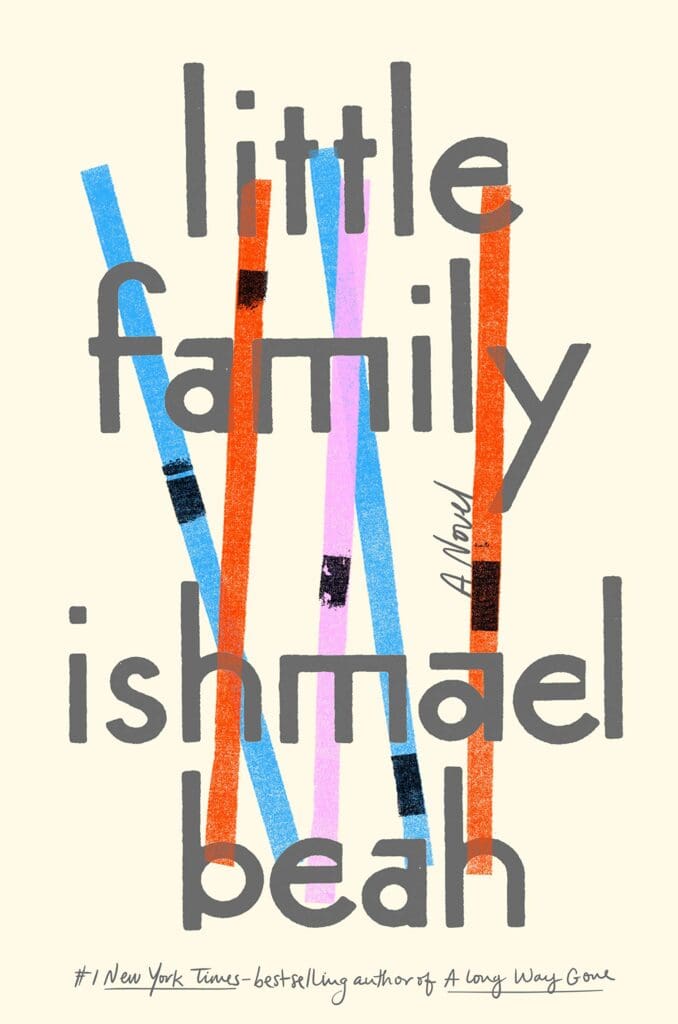Ishmael Beah’s new book, the novel Little Family (272 Pages; Riverhead Books), tells the story of a chosen family whose companionship and commitment to each other replaces their lost homes, working as an antidote to the slanted and violent institutional structures of a post-colonial nation. The story takes place in an unnamed African country, details about which indicate Beah’s native Sierra Leone, where bribery, political corruption, and class disparities characterize the social order. Beah’s understated storytelling gives the family’s camaraderie and mutual understanding the subtle warmth of ever-glowing embers.
Elimane, the book-smart, eldest member of the group, reads Shakespeare and creates the family’s symbolic system of whistles (three whistles signal “King’s property, King’s property, everything is correct”—their “all clear”). Khoudiemata, the second eldest, is a compassionate eighteen-year-old whose independence and tact afford her a glimpse into the lives of the wealthy elite. Kpindi, the thoughtful jokester, and Ndevui, robust and boyish, are the family’s nearly inseparable middle. And finally, Namsa, the newest member, is a young girl whose adaptability proves her to be a well-suited addition even as her night terrors suggest a fixation on her unexplained past.
The family coexists harmoniously, often out of necessity rather than by choice, in an abandoned airplane. Beah creates a portrait of disparity between rich and poor, where the latter is inextricably linked to the former as their exploited labor class and live in the ruins and shadow of the wealthy. For people like the titular family, each morning emerges a proposition, or “a sigh, when the waking had to decide whether to spend their day being useful or being destructive.” When Elimane finds them stable work, however, assisting William Handkerchief with such suspect tasks as scuttling past soldiers patrolling an airport runway to move contraband, the family achieves a sense of financial security.
Beah writes elegantly about the unnamed country in his novel, capturing the stoicism of the natural world even as humans try to survive:
The wind brought reminders of the ongoing commotion from beyond—the sounds of people fleeing, or chasing. The sounds drowned out the usual sounds of evening—the chirping of birds, the waves hitting the shores, something being pounded in a mortar, sirens, and a call for prayer. The ears of nature seemed to be listening, waiting for something to snap. Gradually the footfalls of survival and calamity passed, and faded into the distance. The day was drawing to an end.
While at the beginning the novel’s focus shifts between different members of the family, it eventually settles decisively on Khoudiemata, who is introduced to a social circle comprised of the wealthy children of businesspeople. Their lives glitter with European vacations, sprawling homes populated by hired chefs and homemakers, dinner parties at posh restaurants with colonized entrees: “Succulent simmering cage-free chicken with a hint of black man’s pepper.” Khoudiemata suddenly finds herself living a double life, and Beah articulates with nuance the tension between one’s loyalty to their own and a curiosity about the free-spirited elite whose livelihoods have never been threatened, and whose wealth comes at the expense of people like Khoudiemata.
Little Family’s characters share the names of historical figures whose actions defied Britain’s colonization of Sierra Leone. There’s Manga Sewa, a kind, trustworthy taxi driver who transports Khoudi between her two lives, the namesake for whom was a Yalunka chief who killed himself, his family, and other leaders in a magazine explosion, rather than relinquish the land to a West African empire with links to British colonizers. And Suluku, the forgotten middle name of Khoudi’s romantic interest whose family lays claim to a telecommunication monopoly, a supermarket chain, and a range of crimes including embezzlement, alludes to the Limba leader of the same name who, through disingenuous diplomacy, maintained his independence in Sierra Leone while leading the British to believe that he was an ally.
Little Family is a tender story about a group of young people whose circumstances demand toughness. It’s a touching portrait of those whose lives are seemingly erased by the political and social order but are unfalteringly bright-eyed, sympathetic, and gutsy.
“It’s our freedom that makes us so dangerous,” said Ndevui. “We don’t owe anyone favors, we live by our wits, we can interpret our history and circumstances as they make sense to us, not the way anyone else wants us to.”

